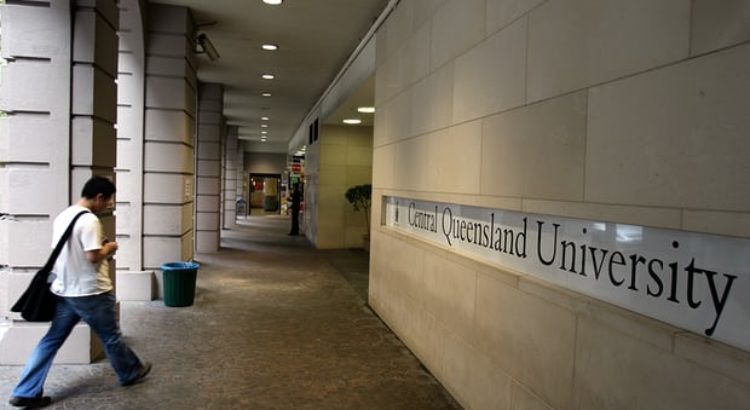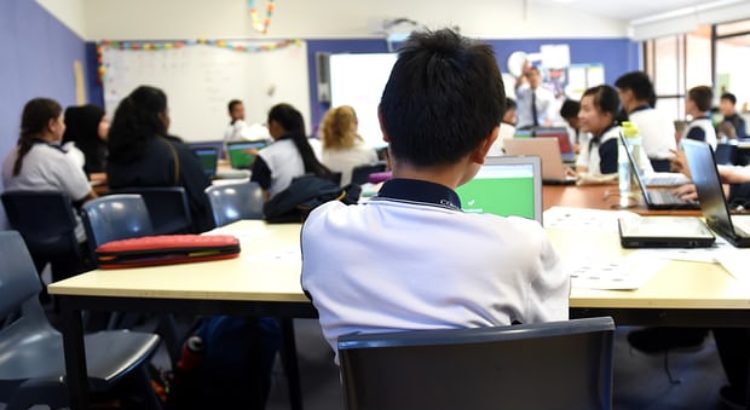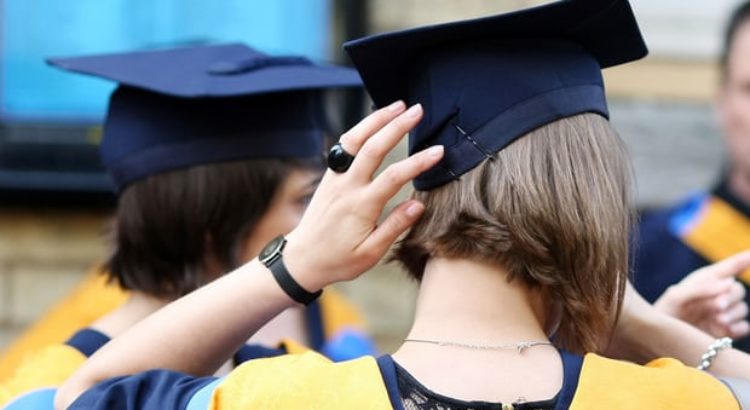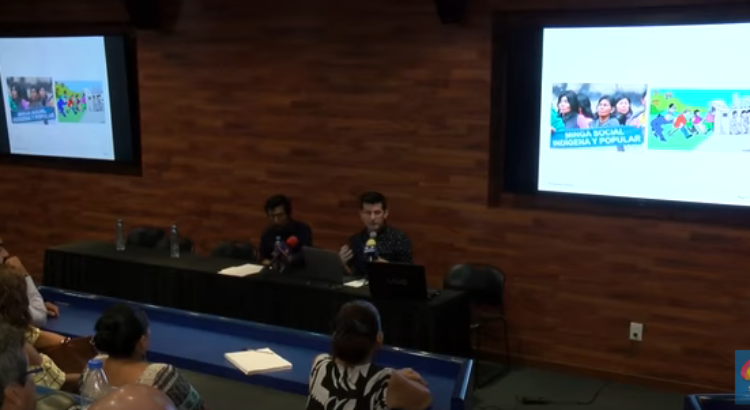Oceania/Australia/universityworldnews/Ly Tran y Truc Le
La educación internacional es la mayor exportación de servicios de Australia, contribuyendo con AU $ 28 mil millones a la economía nacional en 2016-2017. De las 799,371 matrículas de estudiantes internacionales en Australia a finales de 2017, el 44% estaban en educación superior y el 27% en educación y formación profesional. La Estrategia Nacional de Australia para la Educación Internacional 2025 establece un objetivo para la inscripción internacional de 990,000 estudiantes para el año 2025 .
Sin embargo, los docentes australianos se enfrentan a desafíos profesionales significativos para abordar las necesidades de aprendizaje de los estudiantes internacionales. Expertos en el campo como Betty Leask, Jos Beelen y Douglas Proctor señalaron que los docentes son un actor clave para facilitar la internacionalización en la educación superior y se ven directamente afectados por este proceso .
Por lo tanto, el aprendizaje profesional y la capacidad de los docentes para negociar sus demandas profesionales en respuesta a la internacionalización son cruciales para el éxito de la internacionalización y el aprendizaje efectivo de los estudiantes internacionales.
Ly Tran dirige un proyecto DECRA (Discovery Early Career Researcher Award) financiado por el Australian Research Council, cuyo objetivo es investigar las necesidades y prácticas de aprendizaje profesional de los docentes en las nuevas circunstancias de la educación internacional.
Examina cómo los profesores pueden estar equipados para atender de manera efectiva las necesidades de aprendizaje de los estudiantes internacionales y responder a las demandas de la internacionalización entrevistando a 215 miembros del personal tanto en la educación superior como en la educación y formación profesional. Noventa y ocho de estos son académicos y asesores de inglés y habilidades de aprendizaje de 19 universidades en Australia. La investigación también involucra la participación en actividades de aprendizaje profesional docente.
Aprendizaje profesional docente
Nuestro libro recientemente publicado: Aprendizaje profesional docente en educación internacional: prácticas y perspectivas del sector de la educación y formación profesional y los próximos trabajos sobre aprendizaje profesional docente en educación superior derivados de este proyecto abordan las principales áreas de aprendizaje profesional requeridas para mejorar la capacidad docente para responder a las necesidades de los estudiantes internacionales y las demandas relacionadas con la internacionalización.
Enseñar a estudiantes de diversas características lingüísticas, académicas y culturales es un desafío. Los docentes de educación superior solicitan reiteradamente más desarrollo de capacidades culturales contextualizadas a su disciplina en relación con los estudiantes internacionales, en lugar de capacitación cultural genérica, que comúnmente ofrecen las instituciones para el desarrollo profesional de su personal.
Los programas actuales de desarrollo profesional enfocados en la diversidad cultural no han llegado lo suficientemente lejos como para proporcionar a los maestros conocimientos y habilidades esenciales cuando se trata de los complejos problemas relacionados con la cultura que enfrentan en su trabajo con estudiantes internacionales.
Se han realizado buenos esfuerzos para ayudar a los docentes a promover la interacción entre estudiantes internacionales y locales. Lo que queda de la demanda de los docentes en la educación superior es el aprendizaje profesional dirigido a facilitar que diferentes grupos de estudiantes internacionales trabajen juntos.
Los estudiantes internacionales en sí mismos no son de ningún modo un grupo homogéneo. Los maestros necesitan un aprendizaje profesional específico para crear y fomentar un ambiente de aprendizaje positivo y cohesivo para clases culturalmente diversas.
Los docentes también necesitan información de antecedentes relacionada con la cohorte de estudiantes que enseñarán para poder responder de forma adecuada y adaptar el contenido de los cursos. Esperan estar equipados con la capacidad de capitalizar el repertorio transnacional cultural, lingüístico y de conocimiento de diferentes subcohortes de la población estudiantil y utilizar la diversidad de los estudiantes como un recurso para enriquecer el aprendizaje para todos.
En particular, nuestra investigación indica la necesidad de que los programas de capacitación docente y desarrollo profesional incluyan estrategias pedagógicas para ayudar a los estudiantes internacionales a mejorar sus habilidades en el idioma inglés y facilitar la comunicación efectiva con estudiantes internacionales que no hablan inglés.
Esto incluye la pronunciación de los nombres de los estudiantes internacionales, la simplificación del idioma al impartir cursos a estudiantes internacionales y facilitar la comunicación general de los estudiantes internacionales en inglés, así como la capacidad del idioma inglés para el aprendizaje específico del currículo.
Un área de aprendizaje profesional muy necesaria es la colaboración entre profesores de asignaturas y asesores de lenguaje y aprendizaje para incorporar el lenguaje en el aprendizaje disciplinario y desarrollar la experiencia propia de los docentes hacia un objetivo común de optimizar las experiencias de aprendizaje y los resultados de los estudiantes internacionales.
Esta es una práctica que, si los docentes están bien equipados, podría ser muy poderosa tanto para mejorar las habilidades de comunicación en inglés para los estudiantes internacionales como para contribuir significativamente a su aprendizaje disciplinario.
Empleabilidad de estudiantes internacionales
La investigación enfatizó la importancia del aprendizaje profesional continuo para equipar a los maestros con las habilidades y el conocimiento para preparar a todos los estudiantes para el mercado laboral intercultural. Las áreas clave de aprendizaje profesional para ayudar a los maestros con el desarrollo de su capacidad para ayudar a los estudiantes a mejorar su empleabilidad para un mercado laboral cada vez más globalizado incluyen:
- Conocimiento de las culturas de trabajo locales y globales.
- Conocimiento de las necesidades del mercado local e internacional.
- Conocimientos y habilidades para preparar a los estudiantes para el mercado laboral intercultural y globalizado.
- Conocimientos y habilidades necesarios para hacer que la competencia global explícita esté integrada en el plan de estudios y para ayudar a los estudiantes a establecer conexiones sobre cómo puede ser relevante en contextos laborales globales.
- Conocimientos y habilidades para facilitar el aprendizaje integrado en el trabajopara estudiantes internacionales.
- La disposición de las prácticas de trabajo para estudiantes internacionales.
- Información sobre cómo enfrentar los desafíos que los institutos, los docentes y los estudiantes individuales encuentran para encontrar puestos de trabajo.
- Mecanismos de apoyo para los estudiantes en el lugar de trabajo y enfoques para negociar colocaciones de trabajo, así como traer conocimiento de la vida real al aula.
Barreras al aprendizaje profesional en la educación internacional
Nuestra investigación identifica siete barreras principales para la provisión de aprendizaje profesional y la participación en la educación internacional.
Estas son limitaciones financieras y de tiempo, personalización del personal, falta de un mecanismo de apoyo institucional coherente y liderazgo dirigido a la internacionalización, un acuerdo de carga de trabajo actual que no prioriza las actividades relacionadas con la internacionalización, el hecho de que el valor de la internacionalización a menudo no se hace explícito maestros, y la falta de correspondencia entre el desarrollo profesional ofrecido y el necesario para la internacionalización.
La investigación indica que los docentes de la educación superior median las demandas profesionales y participan en el aprendizaje profesional al:
- Aprovechando su propia experiencia y recursos para abordar los nuevos desafíos que surgen del trabajo con estudiantes internacionales. La experiencia previa y la exposición a diferentes culturas a través de viajes, conexiones personales, actividades de voluntariado y redes son recursos esenciales. Sin embargo, tales tipos de capital no siempre están disponibles.
- Buscar consejo o apoyo de colegas y colegas de alto rango a través de mentores informales o formales.
- Movilizar de forma proactiva diferentes recursos y buscar oportunidades de aprendizaje en los lugares de trabajo, incluida la capacitación formal y las actividades de desarrollo profesional de colegas y estudiantes internacionales.
- Establecer relaciones y obtener aportes de los estudiantes internacionales, especialmente a través de conversaciones informales fuera de las aulas y la participación en eventos sociales.
Para desempeñar sus funciones profesionales cada vez más diversificadas y ampliadas, los docentes participan en actividades de investigación y reflexión autodirigidas para adquirir una comprensión profunda y mantenerse al tanto de los diferentes problemas asociados con los estudiantes internacionales.
El impulso personal de los docentes por la investigación y las prácticas reflexivas les permite acumular y mejorar su experiencia y experiencia para responder a las demandas de los estudiantes internacionales.
Sin embargo, a menudo se deja a los profesores individuales para negociar sus demandas profesionales en relación con los estudiantes internacionales. Una gran parte del compromiso de aprendizaje profesional informal de los maestros ocurre de manera ad hoc, en segregación y con poco reconocimiento.
Implicaciones para la provisión de desarrollo profesional
Nuestra investigación señala una necesidad de desarrollo profesional enfocándose en apoyar a los docentes a desarrollar las capacidades no solo para lidiar con los desafíos de enseñar a una población estudiantil cada vez más diversa sino, sobre todo, mejorar su empleabilidad para mercados laborales globales y construir relaciones interactivas productivas con estudiantes internacionales .
Las relaciones interactivas se centran en construir sobre las diferencias culturales y posicionar a los estudiantes internacionales como socios más equitativos en la construcción de conocimiento, habilidades y competencias transnacionales.
El apoyo institucional y el liderazgo dirigidos a la internacionalización junto con la provisión de aprendizaje profesional en el lugar de trabajo para profesores para facilitar su respuesta efectiva a las necesidades de los estudiantes internacionales y negociar las demandas competitivas de internacionalización son cruciales para garantizar los resultados esperados y el impacto de la internacionalización.
Se necesita un enfoque institucional racionalizado y coherente para promover un aprendizaje profesional genuino, significativo y sostenible y para maximizar sus beneficios.
Es esencial que las universidades trabajen en estrecha colaboración con organizaciones profesionales, por ejemplo, en Australia, la Asociación Internacional de Educación de Australia (IEAA), que se especializa en proporcionar desarrollo profesional para el personal de educación internacional.
A través de sus redes integrales , la IEAA ofrece una amplia gama de programas de desarrollo profesional para ayudar al personal a mejorar el bienestar y las experiencias de aprendizaje de los estudiantes internacionales , internacionalizando la enseñanza, el aprendizaje y el aprendizaje en el extranjero .
Nuestra investigación destaca la importancia de crear y mantener un entorno laboral que respalde el aprendizaje recíproco de colegas inmediatos, así como el aprendizaje autodirigido. Las actividades informales de aprendizaje a menudo se inician y se nutren no solo a través de la colaboración entre pares, sino también a través de la motivación y la motivación del docente.
Estos tipos de aprendizaje profesional informal son de naturaleza personalizada y participativa, construyen a los docentes como agentes activos en su propio entorno profesional y responden mejor a las necesidades profesionales inmediatas de los docentes.
Dentro de un mercado de exportación de educación cada vez más competitivo, la información sobre cómo se proporciona a los docentes un aprendizaje profesional que les permita abordar de manera efectiva las necesidades de aprendizaje de los estudiantes internacionales se ha convertido en un activo importante que las universidades deben mejorar.
Las universidades pueden fortalecer la provisión y la participación en el desarrollo profesional de los docentes colaborando estrechamente con los propios docentes y en asociación con organizaciones profesionales en educación internacional como la IEAA.
Fuente: http://www.universityworldnews.com/article.php?story=20180515144632119












 Users Today : 85
Users Today : 85 Total Users : 35459991
Total Users : 35459991 Views Today : 115
Views Today : 115 Total views : 3418580
Total views : 3418580